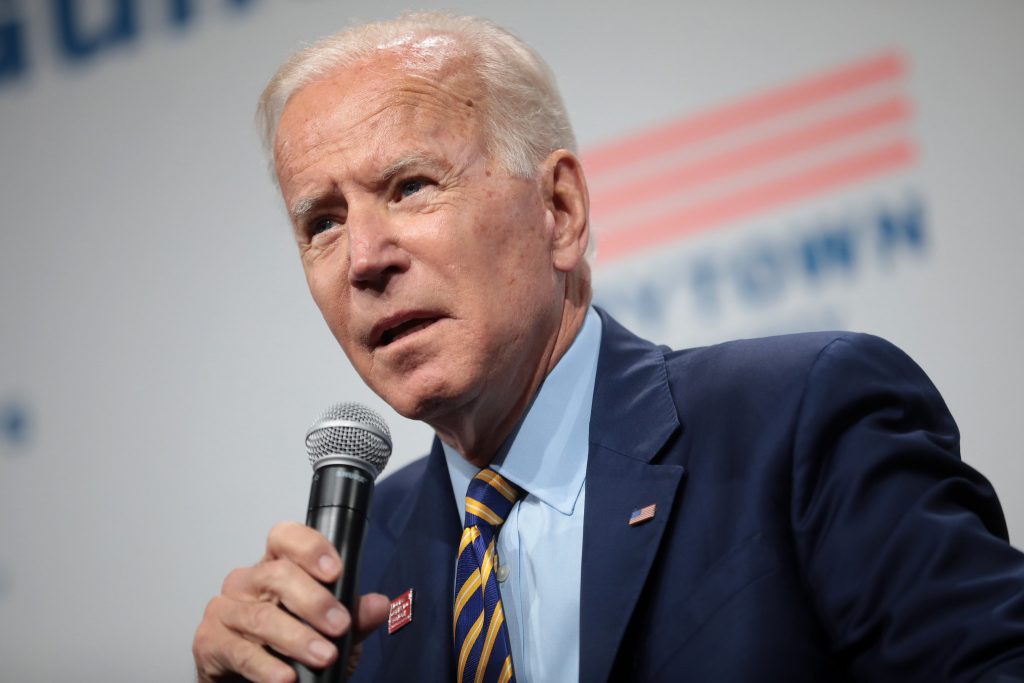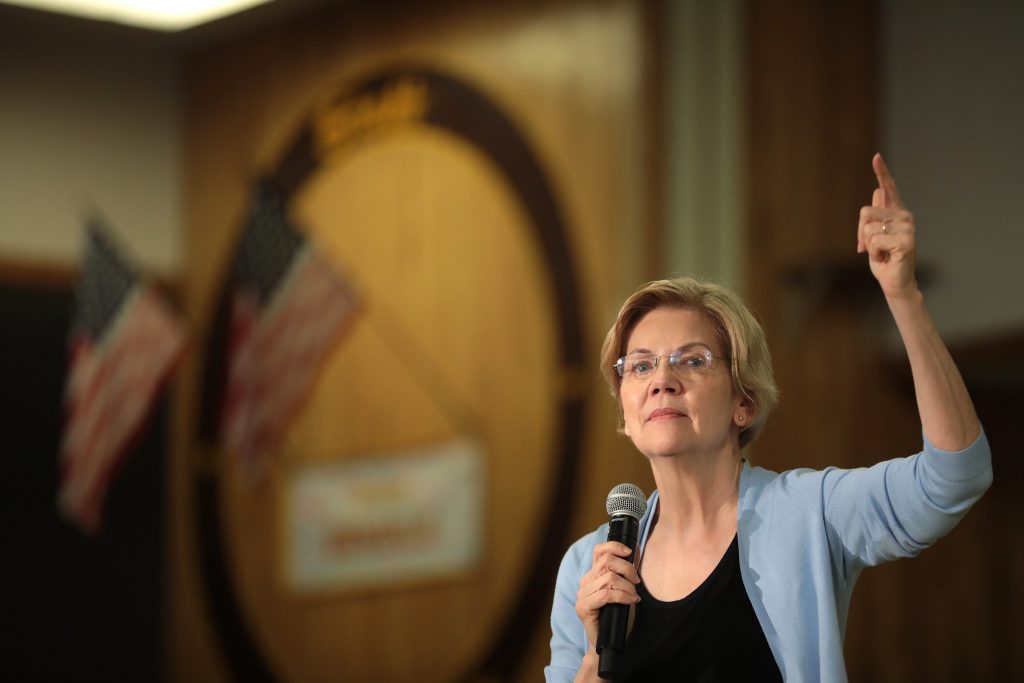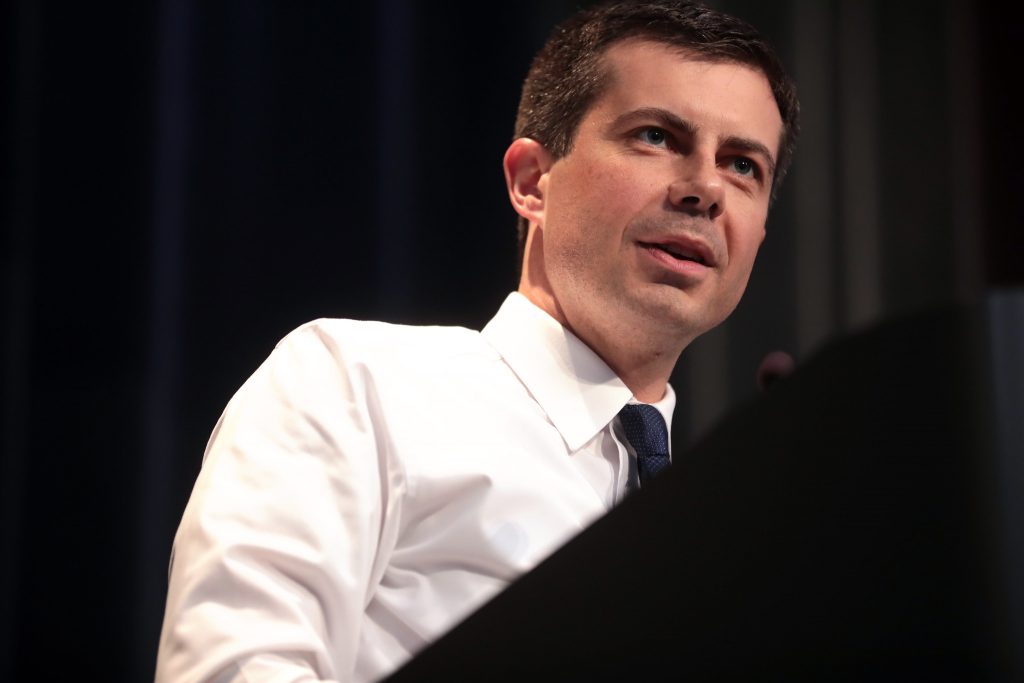
When 10 Democratic candidates take the stage at Texas Southern University in Houston on September 12 for the party’s third presidential primary debate, the event will mark the beginning of a new phase in the party’s lengthy primary.
The Democrats’ extensive field has narrowed considerably, both officially and unofficially. Multiple candidates have already dropped out after failing to qualify for the September debate. This includes New York Senator Kirsten Gillibrand, Washington Governor Jay Inslee and former Colorado Governor John Hickenlooper, three candidates with impressive traditional resumes who launched their campaigns with legitimate hopes of winning their party’s nomination.
Other candidates who failed to qualify, including Colorado Senator Michael Bennet and Montana Governor Steve Bullock, will fight on, but their uphill climb now looks more akin to reaching the top of Mount Everest. Democratic voters eager to find an electable candidate who can beat Donald Trump are unlikely to rally behind a candidate who can’t meet minimal polling thresholds to get into a primary debate (these candidates still have the opportunity to qualify for the primary’s fourth debate, scheduled for October).
The following candidates qualified for the debate, which can be viewed on ABC or Univision: Joe Biden, Bernie Sanders, Elizabeth Warren, Kamala Harris, Pete Buttigieg, Beto O’Rourke, Cory Booker, Julian Castro, Amy Klobuchar and Andrew Yang.
Here’s what to look for when watching the third debate.
Which Policy Issues Will Be Front and Center?
The reality is that televised presidential debates have never been a particularly good venue for in-depth policy discussion. In the two debates Democrats have already held, the network moderators have often framed policy questions in terms of Republican talking points, focused obsessively on creating conflict among the candidates and mostly kept the policy discussion at a superficial level.
Going into the third debate, then, it’s worth asking which issues will make their way into the next day’s headlines. The first two debates were often dominated by the candidates’ healthcare policy proposals – variations on Medicare For All vs. expansion of Obamacare. Will healthcare be the lead topic of discussion in the third debate, as it was in the first two, even though the prospects for successful passage of single payer in a hypothetical Congress controlled by Democrats in 2021 are slim?
Climate change received a few minutes of discussion in both of the first two Democratic debates. But with Governor Inslee and his single-minded focus on climate out of the race, and after the Democratic candidates just finished a televised “climate forum” on CNN, will the issue once again get pushed to the back burner?
Neither of the first two debates spent much time on the pressing question of securing the country’s elections or protecting voters from GOP suppression efforts. Will that change on September 12th? And in the aftermath of multiple mass shootings that have taken place since the last debate, how much will the candidates discuss gun control?
Will Democrats Emphasize Common Ground on Policy?
Primary debates can be tricky affairs – the Democrats on stage September 12 have meaningful disagreements on the issues, but they are far more similar than they are different. But there’s not much incentive for the individual candidates – especially those trailing in the polls – to emphasize the extent to which they agree.
But this understandable emphasis on conflict can obscure the larger truth of the party’s broad unity on most of the issues. For example, former Vice President Joe Biden’s healthcare plan is billed as the “moderate” alternative to Senator Sanders’ “radical” single-payer plan. However, Biden’s plan is still far to the left of anything Democrats have ever pursued in the past. Democrats are arguing over the best way of expanding coverage to millions of Americans – in contrast, Republicans are still talking about repealing Obamacare if they win the 2020 elections.
Will any of the Democratic candidates pass up a chance to draw a contrast with their rivals and instead point out the broader stakes of the 2020 election? Or will the candidates focus instead on their policy differences?

Will Warren and Sanders Disagree?
When Sanders and Massachusetts Senator Elizabeth Warren shared the stage for the first time in the party’s July debate, they mostly spent the evening standing shoulder to shoulder, fending off attacks from the more moderate candidates.
The two have had a friendly working relationship in the Senate and are similar – though far from identical – ideologically. They represent the left flank of the Democratic Party and haven’t publicly squabbled during the campaign so far.
But the Iowa caucuses are drawing near, and the stakes are growing ever higher. Warren has recovered from some early stumbles with a campaign built on a relentless policy focus and is steadily climbing in the polls. Sanders, for his part, maintains a strong base of support and fundraising, but he has struggled to expand his coalition beyond his most fervent supporters. Many polls show Warren pushing past Sanders into second place behind Biden.
Will the unofficial alliance between the two New England progressives hold at the September debate? Or will Warren and Sanders try and differentiate themselves and claim the “liberal lane” for themselves? Keep an eye on healthcare – at the moment, Warren is fully behind Sanders’ Medicare For All proposal. But she has, in the past, acknowledged that she’s open to other paths to universal healthcare coverage. Will she attempt to carve out a slightly more moderate position at the debate? And if she does, will Sanders attack her for it?
What About the Filibuster?
Democrats are releasing ambitious new policy proposals every day. However, the simple reality is that even if the eventual Democratic nominee beats Donald Trump next year, none of these proposals will matter if Democrats fail to take back the Senate at the same time. Democrats need to win three Senate seats to take back the majority – a difficult task, but certainly possible in a favorable national environment.
However, there is no scenario where Democrats win the 13 seats they’d need to secure a filibuster-proof super-majority. This leaves a future Democratic president and Senate majority with two options: abolish the filibuster or win significant Republican support for progressive legislation.
The latter is clearly not going to happen, which leaves abolishing the filibuster and its 60-vote requirement. Will the Democratic candidates acknowledge this reality at the upcoming debate? Warren and South Bend, Indiana Mayor Pete Buttigieg have already called for abolishing the filibuster, while California Senator Kamala Harris said she would kill the filibuster in order to pass ambitious climate legislation. Sanders has not, but his campaign has outlined a somewhat more complicated process involving a Senate maneuver known as reconciliation that would allow Democrats to pass Medicare For All with just 50 votes.
However, Biden has made clear that he opposes abolishing the filibuster, raising the question of how he will persuade Republican Senators to support Democratic legislation when they wouldn’t do so during Barack Obama’s administration.
More broadly, will Democratic candidates at the debate discuss more sweeping structural changes, such as granting statehood to Washington D.C and Puerto Rico and adding more justices to the Supreme Court?

(Photo Credit: Gage Skidmore, CC 2.0)
How Will Democrats Distinguish Themselves on Immigration?
Democrats are united in their disgust at the Trump Administration’s immigration policies, especially family separation. And the candidates are more or less on the same page when it comes to the necessity of comprehensive immigration reform.
There have been some disagreements – Julian Castro, former Secretary of Housing and Urban Development in the Obama Administration, has proposed changing immigration law so that illegal entry into the United States is no longer a federal crime. This policy has been endorsed by Warren and other progressive candidates, but Biden and other moderates have refused to support it.
But aside from Castro, who has been mired in the low single digits despite solid performances in the debates, Democrats haven’t really seized the immigration issue in a proactive way. Democrats will be counting on huge Hispanic turnout in states like Florida and Arizona next year, and their candidates have not found a clear message to articulate to those voters beyond general anti-Trump sentiment. Will the frontrunners try and change that at the next debate?
Can Anyone Effectively Challenge Biden?
The former Vice President’s third presidential campaign hasn’t always gone smoothly. It started with allegations from multiple women that Biden uncomfortably invaded their personal space. His performances at the first two debates were uneven, at best. And many Democrats are growing concerned about Biden’s repeated verbal gaffes and garbled statements.
However, Biden has maintained a significant and indisputable lead in public opinion polls. Democratic primary voters see Biden as the most electable candidate, and that perception is fueling his strength with moderates, older voters and African-Americans. Progressives have been predicting for months that Biden’s numbers are on the verge of collapse. At this point, liberal pundits have been waiting so confidently and for so long that they’re practically characters in a Samuel Beckett play.
On September 12, Biden will, for the first time, share the stage with all his major competitors, including Warren, Sanders and Harris. Will anyone in the field find a way of challenging Biden that will resonate with Democratic voters, especially the African-American voters who overwhelmingly support Biden? Will the comparison with younger, more progressive and more diverse candidates hurt Biden? Or will the former Vice President maintain his position at the head of the pack?



We’re off to the races with an erudite piece on this week’s debates.
I don’t think Biden represents a new generation but Wisconsin wants him by a wide margin.
I didn’t realize the state voted Dump in by such a slim margin and now they’re intent on getting rid of him..
We also have to give Michael Bloomberg credit for helping us turn the Senate Blue. When he decided not to run for President, he said last time he helped us win the House.
This time he focusing on the Senate–so important as they vote for the Supreme Court Justices.
I think President Obama would prefer another candidate besides Biden, as he did in 2016.
And would make an excellent Supreme Court Justice while Trump rots in jail for tax evasion.
.